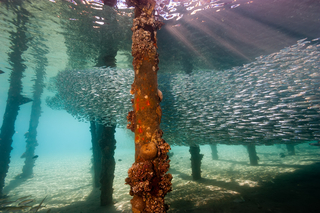Emonet Lab Published in PNAS

Credit: Adobe Stock
Cells are constantly on the move, whether in a developing embryo or metastatic cancer. But how do cells adapt to new environments they encounter? Traditionally, scientists have believed that cells adapt to changes and stressors in their environment through genetic mutations or by altering gene expression. But a new Yale-led study shows that migrating bacterial cells can also respond to changes in their surroundings, quickly and collectively, without any genetic alterations. Specifically, the researchers found that cell populations can adapt “non-genetically” to new environments just by growing and leaving behind slower cells
This study was a collaboration between the Emonet lab and the laboratories of Barbara Kazmierczak at Yale and Thomas Shimizu at AMOLF, a research institute in Amsterdam that is part of the Dutch Resource Council